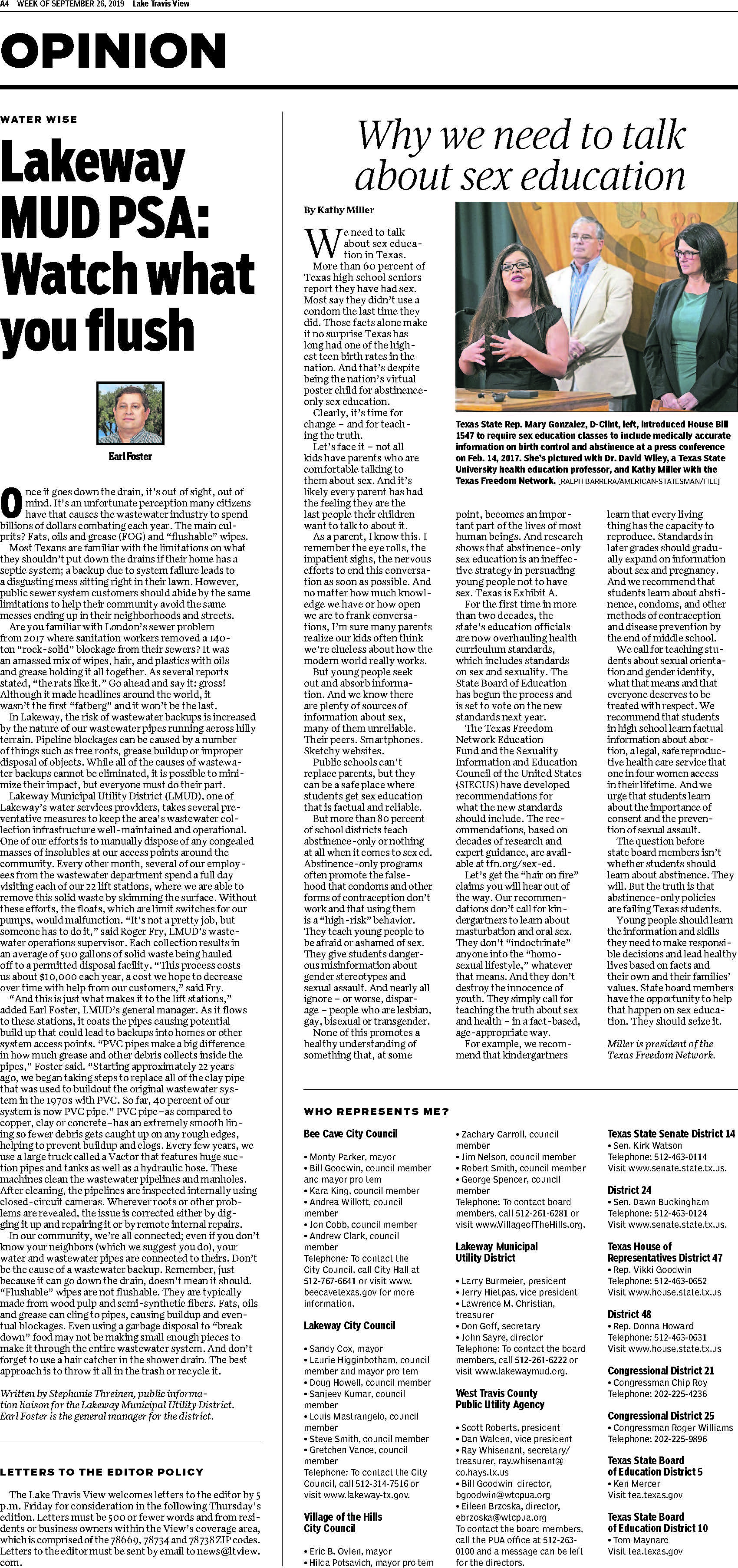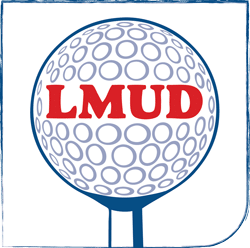Lakeway MUD PSA: Watch what you flush

As published in Lake Travis View, week of September 26, 2019.
Lakeway MUD PSA: Watch what you flush
Once it goes down the drain, it’s out of sight, out of mind. It’s an unfortunate perception many citizens have that causes the wastewater industry to spend billions of dollars combating each year. The main culprits? Fats, oils, and grease (FOG) and “flushable” wipes.
Most Texans are familiar with the limitations on what they shouldn’t put down the drains if their home has a septic system; a backup due to system failure leads to a disgusting mess sitting right in their lawn. However, public sewer system customers should abide by the same limitations to help their community avoid the same messes ending up in their neighborhoods and streets.
Are you familiar with London’s sewer problem from 2017 where sanitation workers removed a 140-ton “rock-solid” blockage from their sewers? It was an amassed mix of wipes, hair, and plastics with oils and grease holding it all together. As several reports stated, “the rats like it.” Go ahead and say it: gross! Although it made headlines around the world, it wasn’t the first “fatberg” and it won’t be the last.
In Lakeway, the risk of wastewater backups is increased by the nature of our wastewater pipes running across hilly terrain. Pipeline blockages can be caused by a number of things such as tree roots, grease buildup or improper disposal of objects. While all of the causes of wastewater backups cannot be eliminated, it is possible to minimize their impact, but everyone must do their part.

Lakeway Municipal Utility District (LMUD), one of Lakeway’s water services providers, takes several preventative measures to keep the area’s wastewater collection infrastructure well-maintained and operational. One of our efforts is to manually dispose of any congealed masses of insolubles at our access points around the community. Every other month, several of our employees from the wastewater department spend a full day visiting each of our 22 lift stations, where we are able to remove this solid waste by skimming the surface. Without these efforts, the floats, which are limit switches for our pumps, would malfunction. “It’s not a pretty job, but someone has to do it,” said Roger Fry, LMUD’s wastewater operations supervisor. Each collection results in an average of 500 gallons of solid waste being hauled off to a permitted disposal facility. “This process costs us about $10,000 each year, a cost we hope to decrease over time with help from our customers,” said Fry.
“And this is just what makes it to the lift stations,” added Earl Foster, LMUD’s general manager. As it flows to these stations, it coats the pipes causing potential build up that could lead to backups into homes or other system access points. “PVC pipes make a big difference in how much grease and other debris collects inside the pipes,” Foster said. “Starting approximately 22 years ago, we began taking steps to replace all of the clay pipe that was used to buildout the original wastewater system in the 1970s with PVC. So far 40 percent of our system is now PVC pipe.” PVC pipe–as compared to copper, clay or concrete–has an extremely smooth lining so fewer debris gets caught up on any rough edges, helping to prevent buildup and clogs. Every few years, we use a large truck called a Vactor that features huge suction pipes and tanks as well as a hydraulic hose. These machines clean the wastewater pipelines and manholes. After cleaning, the pipelines are inspected internally using closed-circuit cameras. Wherever roots or other problems are revealed, the issue is corrected either by digging it up and repairing it or by remote internal repairs.
In our community, we’re all connected; even if you don’t know your neighbors (which we suggest you do!) your water and wastewater pipes are connected to theirs. Don’t be the cause of a wastewater backup! Remember: just because it can go down the drain, doesn’t mean it should! “Flushable” wipes are not flushable. They are typically made from wood pulp and semi-synthetic fibers. Fats, oils, and grease can cling to pipes, causing buildup and eventual blockages. Even using a garbage disposal to “break down” food may not be making small enough pieces to make it through the entire wastewater system. And don’t forget to use a hair catcher in the shower drain! The best approach is to throw it all in the trash or recycle it.
Written by Stephanie Threinen, Public Information Liaison for LMUD. Earl Foster is the General Manager for LMUD.


 You are now being redirected to the WaterSmart page.
You are now being redirected to the WaterSmart page.